7 best existential movies, ranked
- Oops!Something went wrong.Please try again later.
- Oops!Something went wrong.Please try again later.
This article contains affiliate links; if you click such a link and make a purchase, Digital Trends and Yahoo Inc. may earn a commission.
Cinema has taken on the daunting task of asking the big questions about life and existence since the art form started. The best existential films explore hard-hitting philosophical questions and combine these with universal themes that most viewers have thought about or experienced at some point.
Whether it’s the fear of death or the purpose of life, audiences can expect profound and often moving interpretations of some of the hardest questions known to man in these existential movies. Award-winning hits like Everything Everywhere All at Once and must-see classics like Ikiru are among the best in the genre and are perfect for viewers looking for thought-provoking stories with crucial lessons about life and living.
7. Everything Everywhere All at Once (2022)
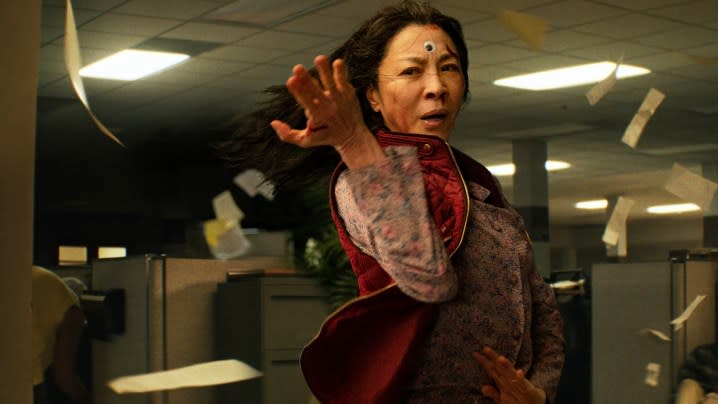
Evelyn Wang (Michelle Yeoh) is having a tough time balancing her failing business, struggling marriage, and complicated relationship with her daughter in Everything Everywhere All at Once. When an alternate version of her husband tells her she’s the only one in the entire multiverse who can save existence as she knows it, it’s the last thing she needs.
What follows is the Daniels’ award-winning comedy-drama film can only be described as a wild adventure into an absurdist version of the universe where anything is possible. Evelyn is devastated at first to learn that she’s living the worst version of her life, but this ironically makes her the only one capable of saving everyone else. At its core, the zany genre-bending A24 movie is about optimistic nihilism, as Evelyn’s winding journey tells viewers that since nothing matters in the grand scheme of things, it’s what is in front of them right now that has the most value.
6. Melancholia (2011)
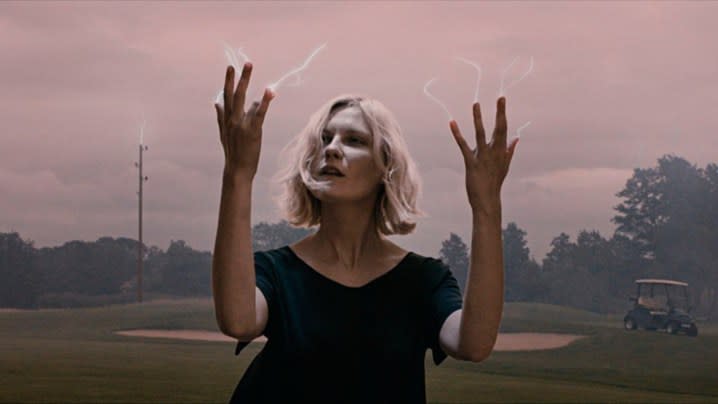
The second film in director Lars von Trier’s unofficially titled Depression Trilogy, Melancholia is centered on two sisters who react differently to a planet hurtling towards the earth. The movie’s first act focuses on the fragile and depressed Justine (Kirsten Dunst), whose actions at a wedding reception disappoint and frustrate her pragmatic sibling, Claire (Charlotte Gainsbourg). The second act underscores the eerie calm when acceptance becomes the only choice as the rogue planet Melancholia collides with Earth.
Lars von Trier’s apocalyptic drama, thriller, and art film is full of visually stunning and haunting scenes that reflect its characters’ turmoil. It is essentially an unsettling portrait of existential dread all the way to the movie’s spine-chilling ending. The planet “Melancholia” is a stark and obvious reminder that death is always looming in the distance and should never be ignored if one wishes to appreciate life fully.
5. The Great Beauty (2013)
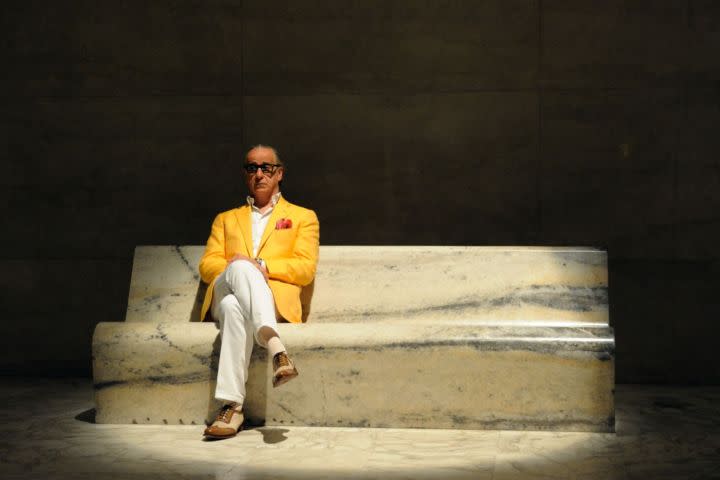
Set against Rome’s gorgeous architecture and lavish nightlife, The Great Beauty is an art drama film that follows Jep Gambardella (Toni Servillo), a jaded journalist and one-time novelist who just turned 65. Jep is used to life as part of high society but begins to yearn for more than mindless parties and fancy dinners. In his quest to find “the great beauty,” he slowly recognizes the very thing he is searching for in surprising aspects of his own life.
Jep’s journey of self-discovery may be told from a privileged perspective, but his struggles with his identity, finding purpose, and rejection of the shallowness he has gotten used to are undeniably relatable. Jep’s story in The Great Beauty is a familiar and thought-provoking existential path that everyone walks at least once in their lives, if they’re lucky, at least.
4. Waking Life (2001)
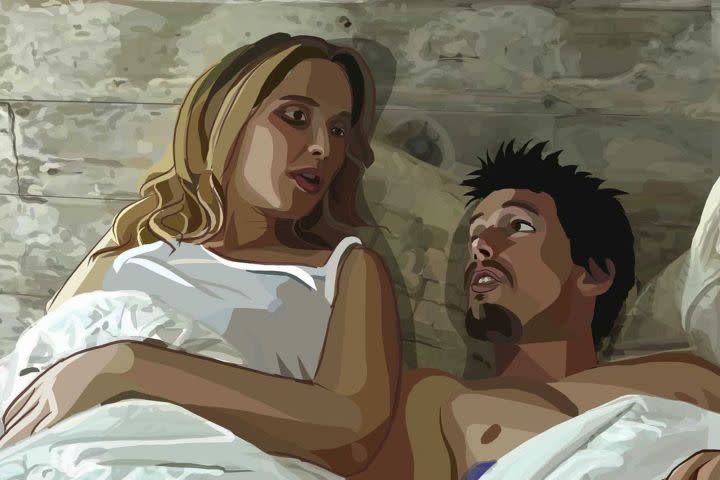
Step into a surreal dream full of philosophical discussions in director Richard Linklater’s Waking Life. The must-see, gorgeously animated movie is wholly original, following an unnamed protagonist (played by Wiley Wiggins) as he drifts through a dreamscape and converses with various philosophers, ordinary people, and even celebrities. They talk about several topics, most concerning the nature of reality, dreaming, and the purpose of life.
Waking Life‘s complex philosophical dialogue is perfectly complemented by its digitally rotoscoped visuals, lending it a dreamlike quality that leaves audiences unsure of what is actually happening. The main storyline is beside the point in Linklater’s unique film, which navigates heavy topics about existence and consciousness with ease. Its protagonist serves as the stand-in for audiences who are in for a bizarre yet strangely poignant ride.
3. Stalker (1979)
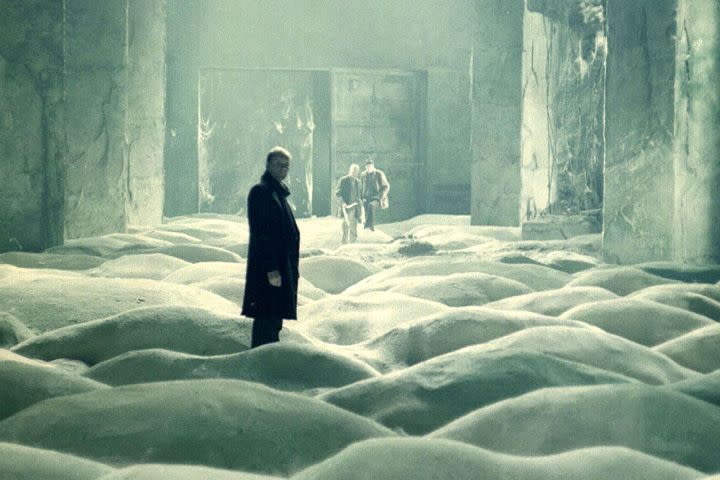
Andrei Tarkovsky created a philosophical masterpiece with the sci-fi art film Stalker. Set in a world where humanity has lost all faith, the movie follows the titular figure (played by Aleksandr Kaidanovsky) whose job is to guide clients through the Zone, a dangerous restricted area that supposedly has a room that can grant anyone’s innermost desire. In this case, the Stalker guides the Writer (Anatoli Solonitsyn) and the Professor (Nikolay Grinko) through the Zone, with the duo eventually revealing their backgrounds and motives along the way.
Chock-full of philosophical and theological allegories, Stalker‘s post-apocalyptic Zone and its enigmatic room are the perfect stage for humanity’s longing for meaning and the many challenges that come with it. The Stalker’s unshakable faith becomes instrumental in leading the two clients through the hazardous wasteland, which soon highlights each individual’s flaws.
2. The Seventh Seal (1957)
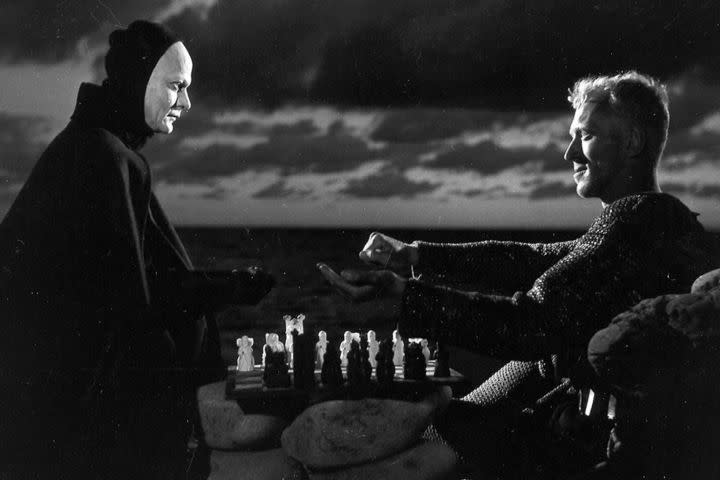
The Seventh Seal is the film that established director Ingmar Bergman as an important figure in world cinema. The movie takes place in 14th-century Sweden during the Black Death, where disillusioned knight Antonius Block (Max von Sydow) returns from the Crusades only to be greeted by more loss of life. Block soon finds himself playing an intense game of chess with Death (Bengt Ekerot) to avoid the inevitable, learning about humanity in the process.
Block’s game of chess with Death has become iconic thanks to its clever use of metaphors, stark black-and-white visuals, and well-written dialogue. The protagonist’s game is an insightful reflection of his struggle to find meaning in his efforts when death is always unavoidable. The Seventh Seal‘s medieval setting also uniquely captures the gloom that came with the plague, making it a one-of-a-kind existential movie that combines history, fantasy, and philosophy.
1. Ikiru (1952)
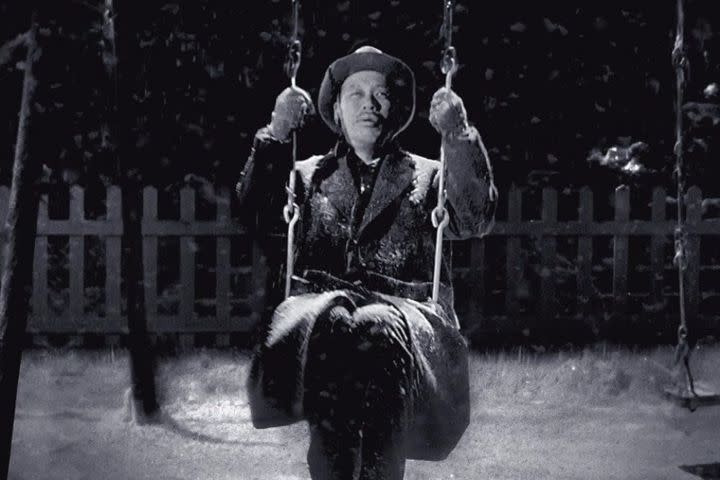
In director Akira Kurosawa’s tear-jerking drama, Ikiru, bureaucratic everyman Mr. Watanabe (Takashi Shimura) is shaken to his core when he learns that he has terminal cancer. He quickly re-examines his life and daily routines, eventually asking the tough question of what he wants to leave behind now that he knows he doesn’t have much time left. After unsuccessful attempts at reconnecting with his family, he turns his attention to a neighborhood that could benefit from a playground.
The film’s title means “to live,” which its protagonist desperately tries to do when he realizes that he spent decades stamping papers, organizing documents, and being just another cog in the machine. Mr. Watanabe’s story is inspiring and heartbreaking, as audiences know exactly how it will end. Ikiru ultimately reminds viewers that its character’s relentless pursuit of purpose in his last days has the vigor, passion, and thirst for life that every person should strive towards every single day.

